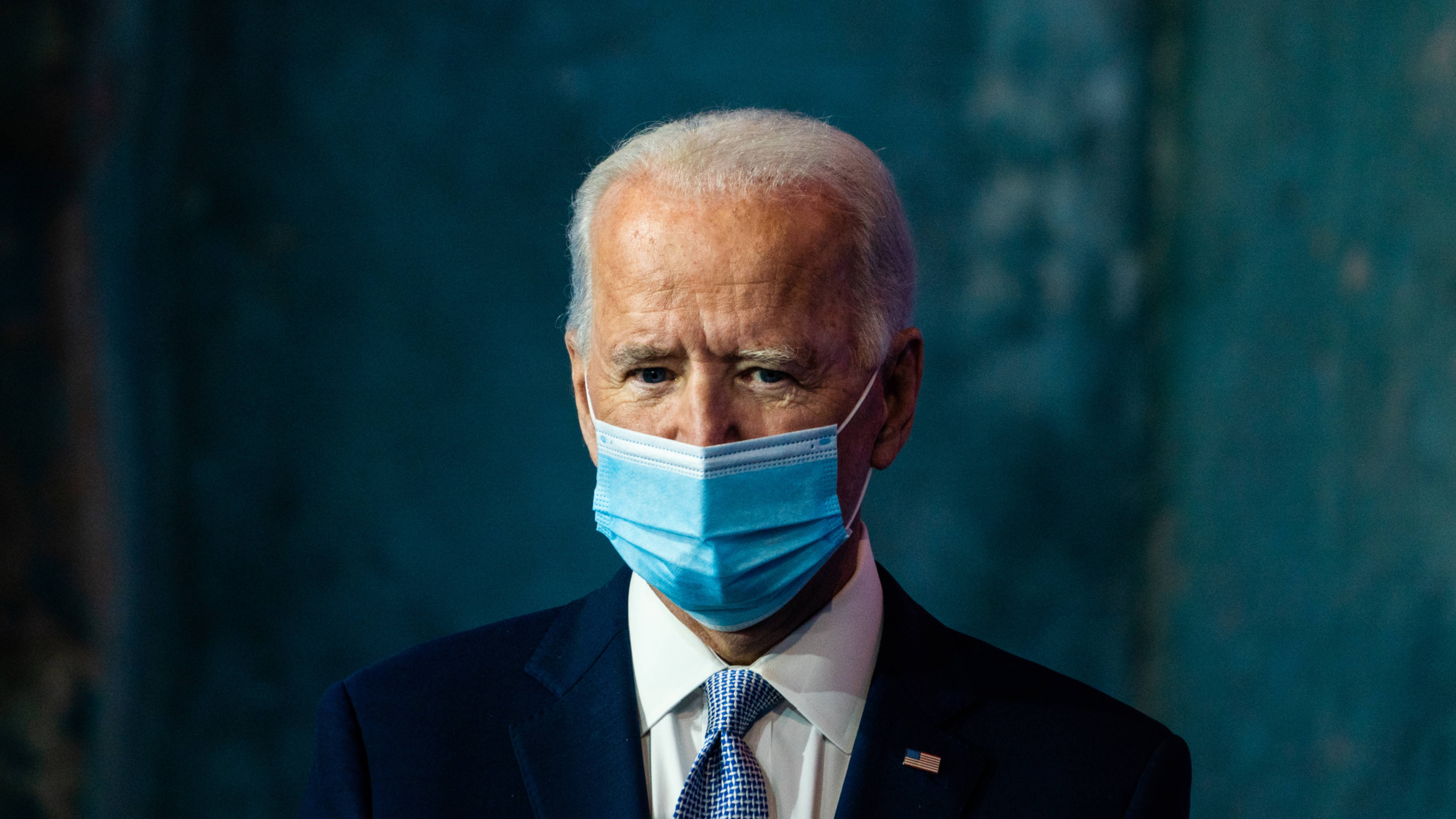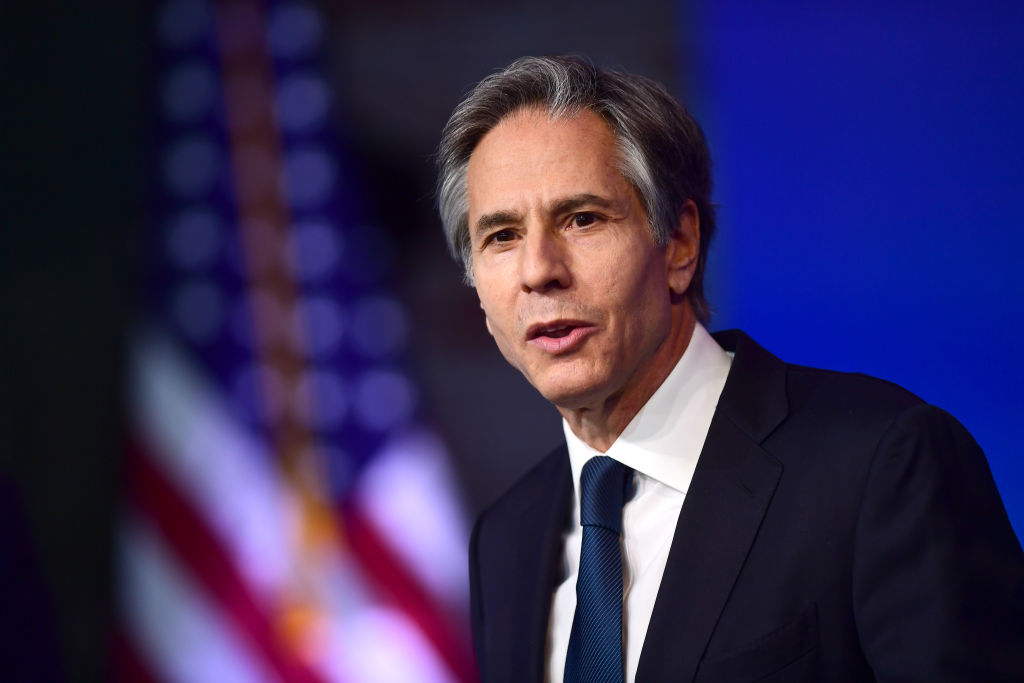
U.S. President-elect Joe Biden introduces his cabinet member nominees at the Queen in Wilmington, Delaware, November 24, 2020. /Getty
U.S. President-elect Joe Biden introduces his cabinet member nominees at the Queen in Wilmington, Delaware, November 24, 2020. /Getty
Editor's note: Hannan Hussain is a foreign affairs commentator and author. He is a Fulbright recipient at the University of Maryland (U.S.) and a former assistant researcher at the Islamabad Policy Research Institute. The article reflects the author's opinions, and not necessarily the views of CGTN.
Less than a day after U.S. President-elect Joe Biden was given the formal go-ahead to begin his transition to presidency, Biden formally announced his nominations for key foreign policy and national security positions at his transition headquarters in Delaware. Among his picks lie four key figures, including some of his most trusted advisers, who would collectively determine the trajectory of American leadership overseas.
Biden's pick for the 71st U.S. Secretary of State is Antony Blinken. A top Biden aide in the Senate, Blinken has wielded prior portfolios of deputy national security adviser and deputy Secretary of State in the Obama administration. His resolve to rejoin global agreements and salvage U.S. leadership in Europe, comes with a well-established preference for some of the more contested instruments of U.S. influence-building abroad, such as greater military involvement.
Consider Blinken's belief that force is a powerful adjunct to "effective diplomacy." Such supplementation could prove less adaptive in regions such as the Gulf, where an increasingly militaristic view of regional peace has waned U.S. influence considerably over the past four years.
A vital consensus informing Blinken's worldview is the fact that diplomatic trust is threatened by unilateralism, forcing an automatic rethink on climate change, pandemic preparedness, and the strategy of coercing U.S. allies to risk their sovereign ties. "To state the obvious, none of these [the major problems facing the world] have unilateral solutions," said Blinken at a think-tank forum in July. Hence, the true indicator of Blinken's foreign policy statecraft will be to generate precedents for future cooperation with countries beyond like-minded Western democracies.
On China, for instance, he is unmoved by the idea of radical de-coupling, but insists Washington must contain China by fixing Western alliances. A more belligerent brand of this same containment rationale is what damaged prospects for U.S.-China cooperation in recent years, raising questions about Washington's potential to truly coexist.
Jake Sullivan, Biden's pick for National Security Adviser, builds on Blinken's commitments but presents a degree of awareness on how American foreign policy imperatives are perceived in different corridors of the world. He considers America's re-entry into the Joint Comprehensive Plan of Action (JCPOA) as an opportunity for a "follow-on agreement" to address some of America's "ongoing concerns" with Iran, having understood the value of communicating intent in the lead-up to the 2015 nuclear pact.

U.S. Secretary of State nominee Antony Blinken, after being introduced by President-elect Joe Biden, speaks at the Queen Theater in Wilmington, Delaware, November 24, 2020. /Getty
U.S. Secretary of State nominee Antony Blinken, after being introduced by President-elect Joe Biden, speaks at the Queen Theater in Wilmington, Delaware, November 24, 2020. /Getty
His advocacy for a military drawdown in South Asia and the Middle East is met with a "transatlantic diagnosis of the China challenge." Sullivan reads Beijing as a 21st century rival that is open to cooperation on nuclear proliferation and climate, and demands a "position of strength" from the United States at the world stage.
The source of Sullivan's positioning is the cause of "American exceptionalism," popularly described as the reconciliation of "patriotism with internationalism," where foreign policy supports the cause of domestic renewal, "while dealing effectively with external threats."
Therefore, to champion the cause of multilateralism, both Blinken and Sullivan must prove American foreign policy is roundly compatible with diverse leaderships, governance systems, and the principled positions that define distinct pathways toward global cooperation.
The task of restoring American soft power at the United Nations seems also to be in capable hands. Biden nominated Linda Thomas-Greenfield, a seasoned U.S. diplomat with over three decades of experience across four continents, to serve as the U.S. Ambassador to the United Nations.
Her immediate predecessors – Nikki Haley and Kelly Craft – leave a rich trail of American peace-making shortcomings at the global forum, led by selective focus on human rights, nationalist positions on financial contributions, political confrontation over conflict responses, and outright rejection of member states' broad-based security consensus. It is against this backdrop, that Thomas-Greenfield's pluralistic approach to emerging global challenges will be a major factor in determining international embrace of U.S. leadership, and shaping popular consensus among the UN's permanent five veto-wielding members.
Biden also tapped former U.S. Secretary of State John Kerry to serve as America's climate envoy, a newly established post on the National Security Council. Preparing the ground for net zero emissions by 2050, clean energy transitions, and resilient infrastructure would demand the full force of Kerry's climate diplomacy at home, prior to going global.
He must navigate sharp opposition in the Senate to Biden's 2 trillion U.S. dollar climate plan, widely viewed as the key to operationalizing American commitments under the Paris Accords and beyond. Kerry's tangible contributions to brokering the Paris Agreement, and securing dozens of global climate commitments on the way, could prove useful in inducing bipartisan support for the mega plan at home.
Ultimately, all of Biden's foreign policy picks are willing to reconstruct America's place in the world, in a bid to consciously relocate it. But given the diversity of global leaderships at work today, Washington will need more than just like-minded democracies to boost cooperation by consensus.
(If you want to contribute and have specific expertise, please contact us at opinions@cgtn.com.)

